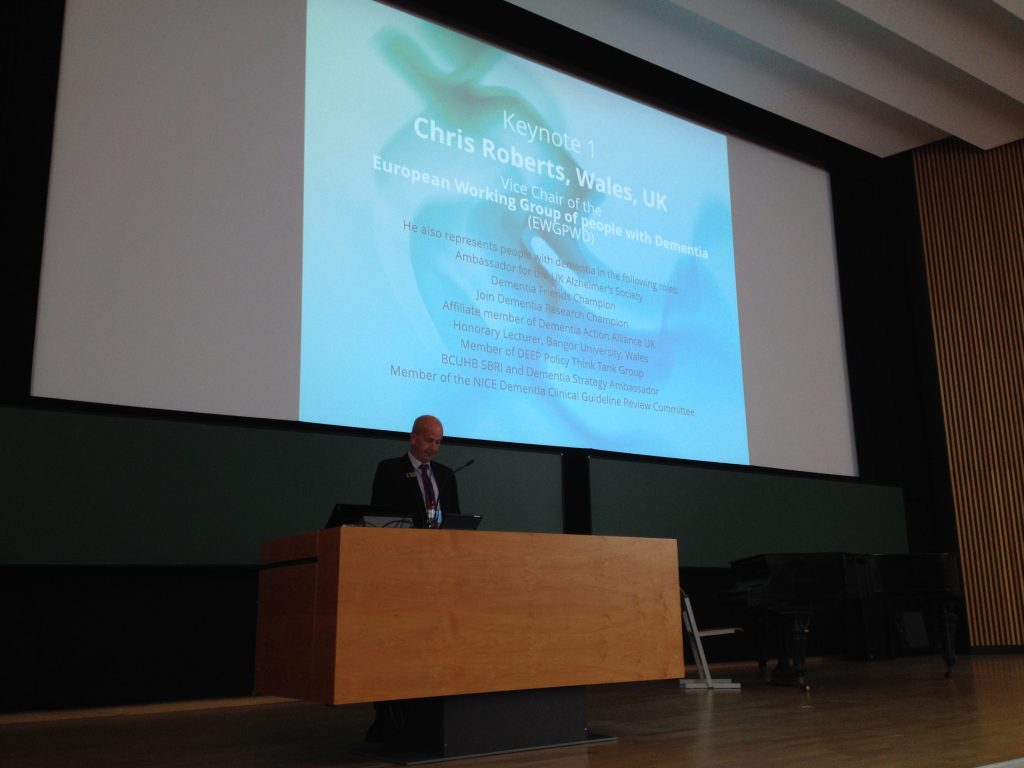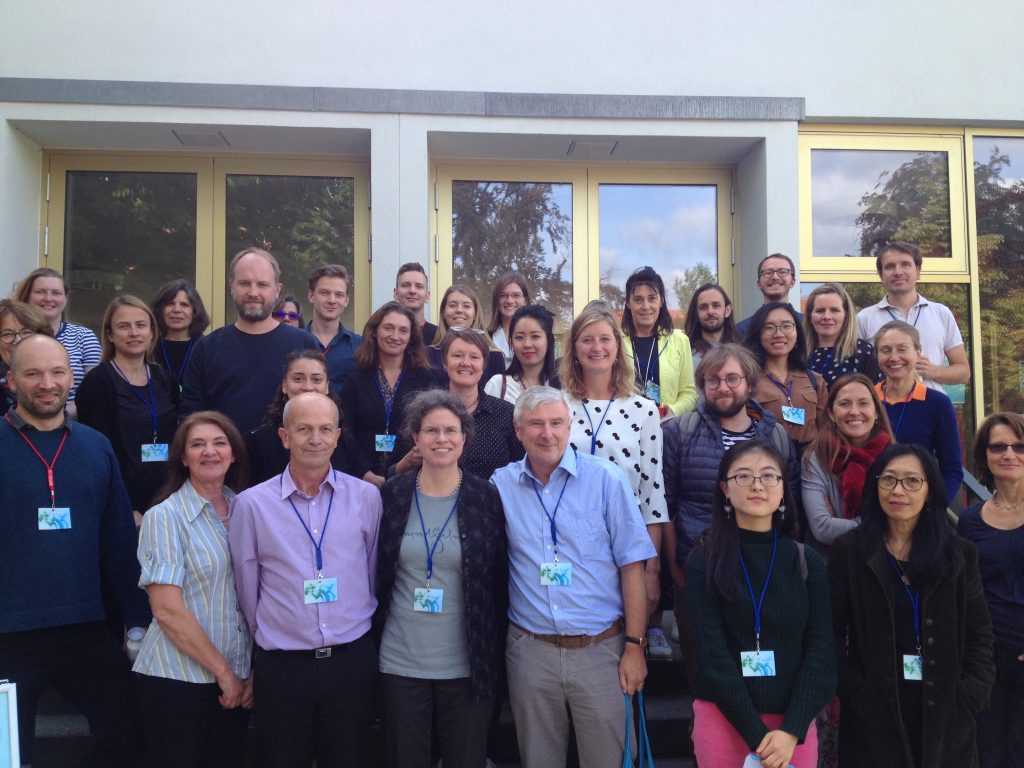This secondment, which was hosted by Alexianer St Hedwig Hospital in Berlin and Technische Universität Dresden, was focused on the MinD international conference 2019. Under the motto “Designing with and for People with Dementia: Wellbeing, Empowerment and Happiness”, the conference represented a unique opportunity to share state-of-the-art work in this field as well as to shape future trends by contributing to the transformation and innovation in products, services, housing, etc., putting people living with dementia at the very core of the design processes.
On the first day of the conference, after a warm welcome on the part of the organizers of this event, Kristina Niedderer framed the event into the objectives of the MIND Project: “Bringing together professionals from design and healthcare sector (….) to explore the potential of design to help and support people living with dementia, carers and professionals embedding mindfulness through design”
Chris Roberts was the first keynote speaker, who drew the audience’s full attention by offering the point of view of those affected from his own experience. He described the difficult path following the diagnosis as “the most disempowering thing” and the overcoming of a number of important barriers, to achieve acceptance: “I’m still me. We don’t change overnight (…) but it is changing. We need to change our lives”.
Helma Van Rijn was the second keynote speaker, who gave an engaging presentation about “how to understand and design for the needs of users when they are difficult to reach”. For Helma, designing is all about bringing meaning to society. The key is not in what we design but for whom we do it, presenting a model that starts with “exploring” (listening to people through meaningful encounters), followed by “envisioning” (getting insights) and ending with “enabling” (designing new concepts).
On the second day, “Mindfulness and its relevance to cognitive decline and dementia” was the third and last keynote presentation, by Natalie Marchant. A wide number of positive outcomes of mindfulness -based interventions for dementia were elucidated by the speaker, drawing on scientific studies and evidence in the field. Particularly, interventions that reduce stress levels connected to dementia are key.
Parallel sessions and workshops taking place on the first day encompassed sessions about Co-Design, Wellbeing and Play, Design of Public Spaces and Care Centres Architecture: A wide realm of innovative works were presented such us how to convert disorder wandering into a guided activity, the AIR model of co-design, IoT design for dementia, interventions for positive moments, sound play for wellbeing, playful objects for dementia, designing dementia friendly public spaces, smart materials, care centres and architecture, etc. Ethics and Awareness and Storytelling.
The conference ended with a Panel Session that discussed core issues and questions put forward by the delegates of the conference, and which had emerged from the presentations and lessons learned during these two exciting days.


